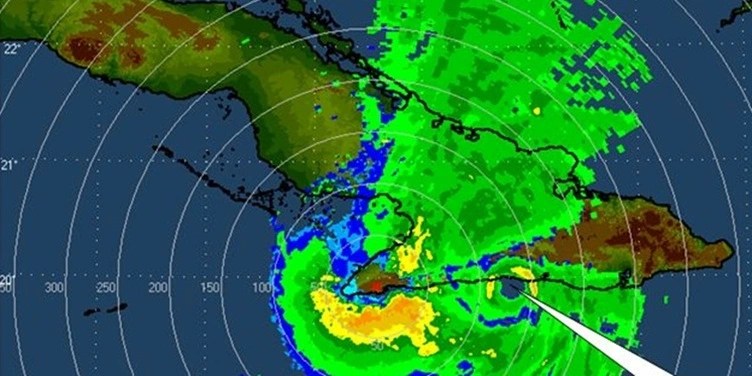HAVANA. – When one hears Nicolás Maduro speak, it’s hard not to be amazed that such a specimen holds the presidency of a country. We know the reasons: the intervention of the “great leader” Hugo Chávez on his behalf, and all the coercive and unconstitutional methods that have been used to keep him in power up to now—when he has one butt cheek on the presidential chair and the other on some unspecified seat in a U.S. Southern Command vehicle, if they catch him alive.
A similar sense of bewilderment comes over me when I listen to Miguel Díaz-Canel—a man more capable than Maduro of articulating ideas, but with an unmatched talent for doing everything wrong: from reducing a country to dust without using explosives, to aligning himself with criminal regimes committed to the destruction of the West.
The worst part is that so much political ineptitude doesn’t even come from his own inspiration. Frightened by the thunder coming from Venezuela, the real power has had to practically drag Raúl Castro out of the funeral home to show who’s in charge of the Caribbean shack: a 94-year-old man dressed in olive green as if reenacting the missile crisis—or perhaps trying to send the message that Cuba is ready to do more than just collect signatures in symbolic support of Chavismo. In short, whoever sends mercenaries to Ukraine can also send them to Caracas, though it’s unlikely they’ll squeeze a penny out of that deal given the amount of oil the Bolivarian republic has gifted the regime.
From his house while wearing slippers, Raúl Castro only has to make the call, and Díaz-Canel’s already hefty repressive record will grow with express recruitments—similar to those in the 1970s and 80s in military units that shipped cannon fodder to Africa. The threat hangs in the air like an old Bob Dylan song, accompanied by Martí and Fidel quotes—especially the latter’s line committing Cuba to Chavismo to the point of declaring: “For Venezuela, we must give everything.”
If that moment comes, let them give everything—those who have squandered and resold Venezuela’s oil without investing a single dollar in improving Cuba’s national energy grid. Let Sandro Castro go, El Cangrejo, Díaz-Canel’s son, and the newly promoted deputy minister. Pull Lis Cuesta’s son out of his expensive master’s program in Spain and send him to make a fool of himself alongside the Chavista militias. Let the Armed Forces personnel go—those who have granted themselves undeserved privileges without ever fighting a single war for Cuba.
Nervousness is spreading through the military units, due to speeches calling for altruism, combativeness, and sacrifice in favor of sister nations that have supposedly helped us resist the U.S. imperialists’ attacks. Such words now go beyond the usual kitschy patriotism and so-called internationalism.
Hopefully, the Cuban people will find the courage to stand between the dictators and their sons. That moment may be very near, the moment when they must protect their children from being sent to die on foreign soil for an elite that has spent more than six decades treating our lives as bargaining chips in shameful deals with the world’s worst criminals. So much so that while the Castro leadership reaffirmed its alliance with Chavismo and even forced schoolchildren to sign declarations of support, Nicolás Maduro was offering the White House direct participation in exploiting Venezuela’s key resources and promising to cancel contracts with countries he had considered strategic partners just one day earlier—China among them.
The 21st-century narco-socialists have never cared about sovereignty or loyalty to their commercial and political partners. A report by The New York Times revealed Maduro’s proposal and his explicit willingness to give Washington whatever it wants in order to stay in power. Chávez’s successor offering it all, while Havana chokes on its tough-guy speech—one that smells of fear, because they know Trump isn’t interested in negotiations.
It’s too late for that. Former President Joe Biden tried in exchange for free elections, which Maduro lost and then hijacked in front of the whole world. The time has come to do things differently, and the United States would be wise to recognize that, while Havana has remained economically and energetically dependent on Caracas, Chavismo has relied all these years on Cuban intelligence services to dig itself so deeply into power that it can now only be removed by force.
Venezuela is an urgent target due to the destabilization it causes across the continent—but once again, we lose sight of the fact that the origin and mastermind of this evil lie in Cuba, a Caribbean island that has spread its ideology of violence, poverty, dependence, and modern slavery throughout the Americas. If we are to heed the words of opposition leader María Corina Machado, the plan is to bring down Maduro so that Havana falls next. I don’t mean to lecture the strategists, but knowing who we’re dealing with, maybe it would be wiser to bring down Havana first and Maduro immediately after.
Recibe la información de CubaNet en tu celular a través de WhatsApp. Envíanos un mensaje con la palabra “CUBA” al teléfono +1 (786) 316-2072, también puedes suscribirte a nuestro boletín electrónico dando click aquí.
ARTÍCULO DE OPINIÓN Las opiniones expresadas en este artículo son de exclusiva responsabilidad de quien las emite y no necesariamente representan la opinión de CubaNet.






 HAZ TU DONACIÓN AQUÍ
HAZ TU DONACIÓN AQUÍ
